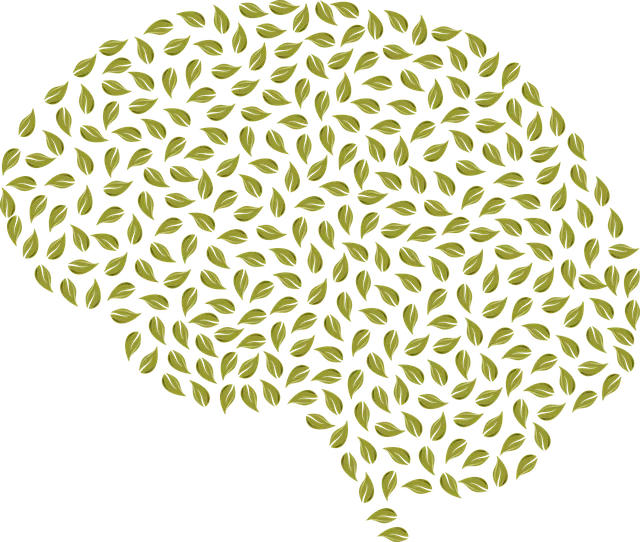Englewood Kaiser mental health classes provide comprehensive, holistic support for individuals affected by trauma, leveraging evidence-based therapies, community building, and specialized training. Their approach includes stress management workshops, emotional processing through journaling, and risk management planning for professionals, all aimed at empowering participants to express feelings, cope with stress, and reclaim their lives while fostering a supportive, trauma-informed community.
Trauma is a significant public health concern, affecting individuals across diverse communities. This article explores comprehensive trauma support services, focusing on the unique offerings of the Englewood Kaiser Mental Health Classes. We delve into strategies for effective support, emphasizing the importance of understanding trauma’s profound impact. Additionally, we discuss building a trauma-informed community, highlighting the transformative potential of accessible resources like those provided by Englewood Kaiser.
- Understanding Trauma and Its Impact
- Englewood Kaiser Mental Health Classes: An Overview
- Strategies for Effective Trauma Support Services
- Building a Comprehensive Trauma-Informed Community
Understanding Trauma and Its Impact

Trauma is a profound and complex experience that can have lasting effects on an individual’s mental and emotional well-being. It occurs when someone faces or witnesses a deeply distressing event, such as violence, accidents, natural disasters, or military combat. The impact of trauma varies greatly from person to person, but common responses include intense emotions, flashbacks, nightmares, avoidance behaviors, and heightened anxiety or irritability.
Englewood Kaiser mental health classes offer valuable resources for individuals seeking support after traumatic experiences. These classes focus on various aspects of healing, including communication strategies to help people express their feelings and connect with others, stress management techniques to cope with the aftermath of trauma, and confidence-boosting exercises to navigate life’s challenges. By addressing these key areas, Englewood Kaiser provides a holistic approach to trauma support, empowering individuals to reclaim their lives and build resilience in the face of adversity.
Englewood Kaiser Mental Health Classes: An Overview

Englewood Kaiser Mental Health Classes offer a comprehensive range of services designed to support individuals dealing with trauma. These classes are an integral part of the community’s effort to enhance mental wellness and resilience among residents. The program includes various initiatives such as educational workshops, supportive group discussions, and therapeutic activities aimed at empowering participants to manage their mental health effectively.
One notable component is the Community Outreach Program Implementation, which brings these services directly to underserved communities. Additionally, Mental Wellness Journaling Exercise Guidance helps individuals process their emotions through reflective writing. Stress Management Workshops Organization provides practical tools for coping with daily stressors, fostering a healthier and more balanced lifestyle. These engaging activities contribute to a holistic approach, ensuring that trauma support is accessible, tailored, and impactful.
Strategies for Effective Trauma Support Services

Effective trauma support services rely on a multifaceted approach that combines specialized training, accessible resources, and a supportive environment. Englewood Kaiser mental health classes exemplify best practices by offering evidence-based therapies tailored to address complex trauma. These classes not only educate individuals on coping mechanisms but also foster a sense of community, crucial for healing. Mental Health Awareness is paramount in ensuring individuals feel comfortable seeking help without stigma.
Moreover, integrating Risk Management Planning for Mental Health Professionals into service provision safeguards both practitioners and clients. This strategic approach involves establishing clear protocols for handling traumatic events within the therapeutic setting. By analyzing and advocating for Mental Health Policy that prioritizes trauma-informed care, communities can ensure comprehensive support systems are in place. Such policies enhance accessibility to resources, reflecting a commitment to Mental Health Policy Analysis and Advocacy on a larger scale.
Building a Comprehensive Trauma-Informed Community

Building a Comprehensive Trauma-Informed Community begins with recognizing and understanding the prevalence and impact of trauma on individuals and communities. Englewood Kaiser mental health classes play a crucial role in this process by offering specialized training for healthcare providers, focusing on both Burnout Prevention Strategies and Cultural Competency Development. These initiatives ensure that professionals are equipped to provide sensitive and effective support to those who have experienced trauma.
By integrating Healthcare Provider Cultural Competency Training and Mental Wellness Coaching Programs, the community fosters an environment where everyone feels seen, heard, and valued. This holistic approach not only enhances the availability of trauma-informed services but also encourages a sense of safety and belonging among residents. Such efforts are transformative, enabling individuals to heal and thrive in a supportive and understanding setting, ultimately contributing to a healthier and more resilient community.
Trauma support services play a pivotal role in healing and resilience. As highlighted by the Englewood Kaiser mental health classes, community-based initiatives can significantly impact individuals’ lives. By understanding trauma’s profound effects and adopting strategies like those discussed, we can create a more comprehensive and supportive environment. Building a trauma-informed community involves everyone from healthcare providers to policymakers, ensuring that resources are accessible and effective. This holistic approach promises a brighter future where those affected by trauma receive the care and compassion they deserve.






